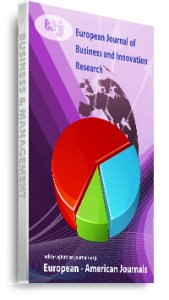This study investigated the effect of segment reporting on cost of capital of selected deposit money banks in Nigeria. The dependent variable of this study was cost of capital which was proxied by cost of debt, while segment reporting being the independent variable was proxied by business segment information, geographical segment information and external customer information. The research design adopted for the study was ex post facto, secondary data was employed, three hypotheses were also tested, and purposive sampling technique was employed. The data for the study was analyzed using ordinary least square technique and the statistical tool used was STATA 16. From the outcome of the analysis, it was found out that business segment information and geographical segment information has significant effect on cost of debt capital of selected banks in Nigeria. Thus it was concluded that reporting separate financial information about reportable segments have the likelihood to reduce the banks cost of debt. Based on the outcome of this study, it was recommended that banks should in addition to the disclosure requirement of IFRS 8 make other voluntary and non-financial information as this will completely eliminate information asymmetry and in both the short and long run reduce their cost of debt.
Citation: Samuel H.U., Akpan D.C., and Okpo S.A. (2022) Segment Reporting and Cost of Capital of Banks with International Authorization in Nigeria, European Journal of Business and Innovation Research, Vol.10, No.8, pp.,12-23
Keywords: Segment reporting, business segment, cost of debt, external customer, geographical segment

